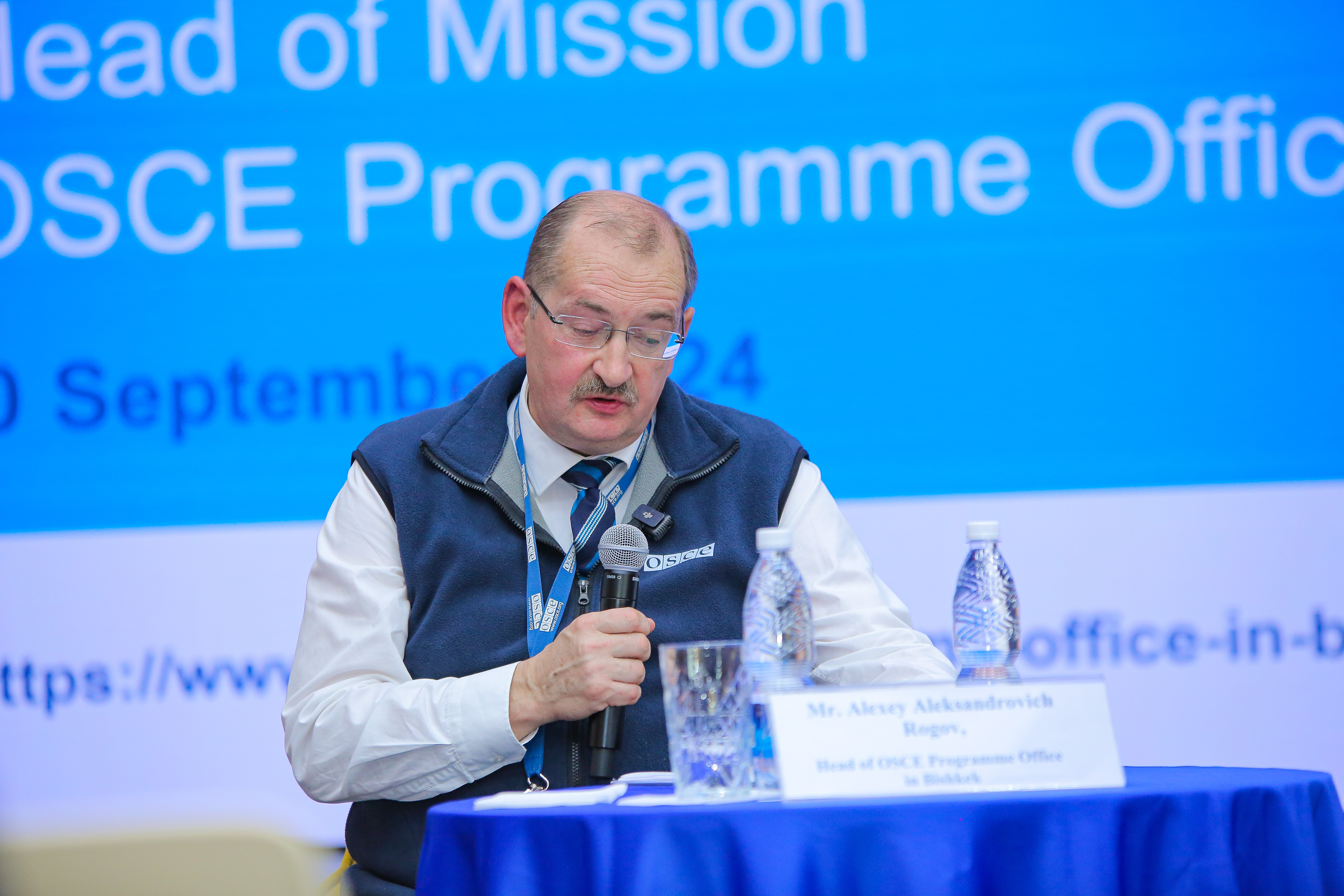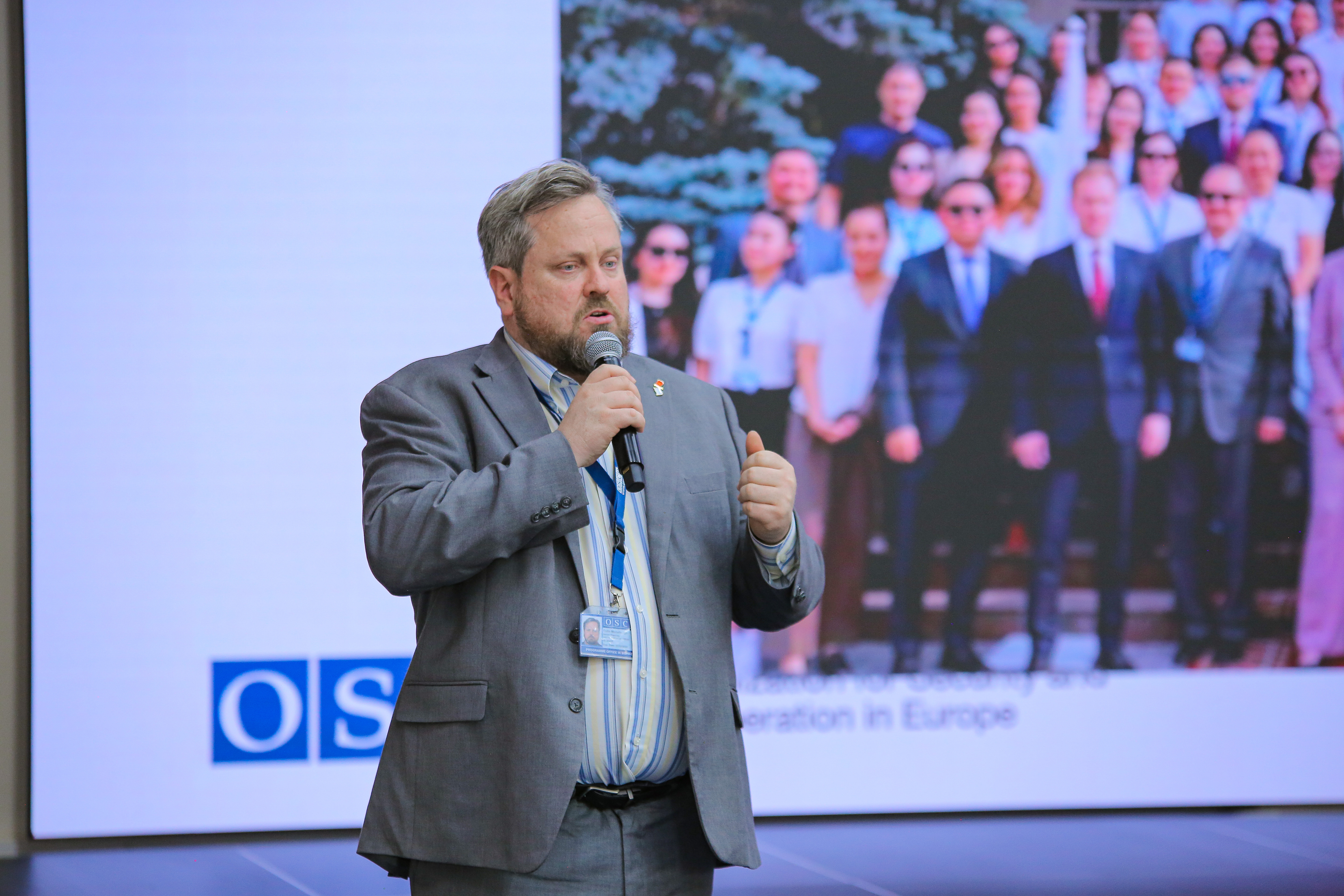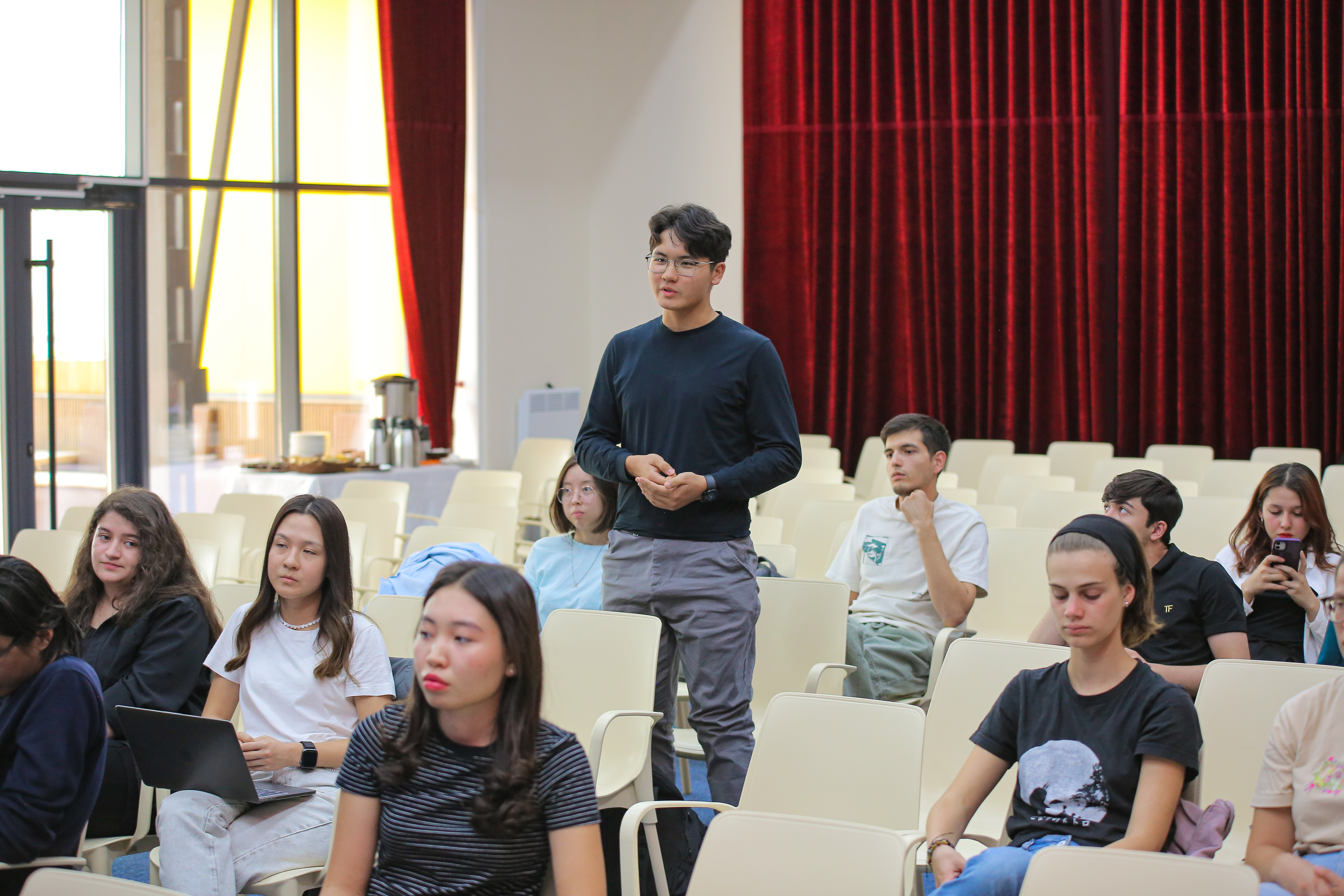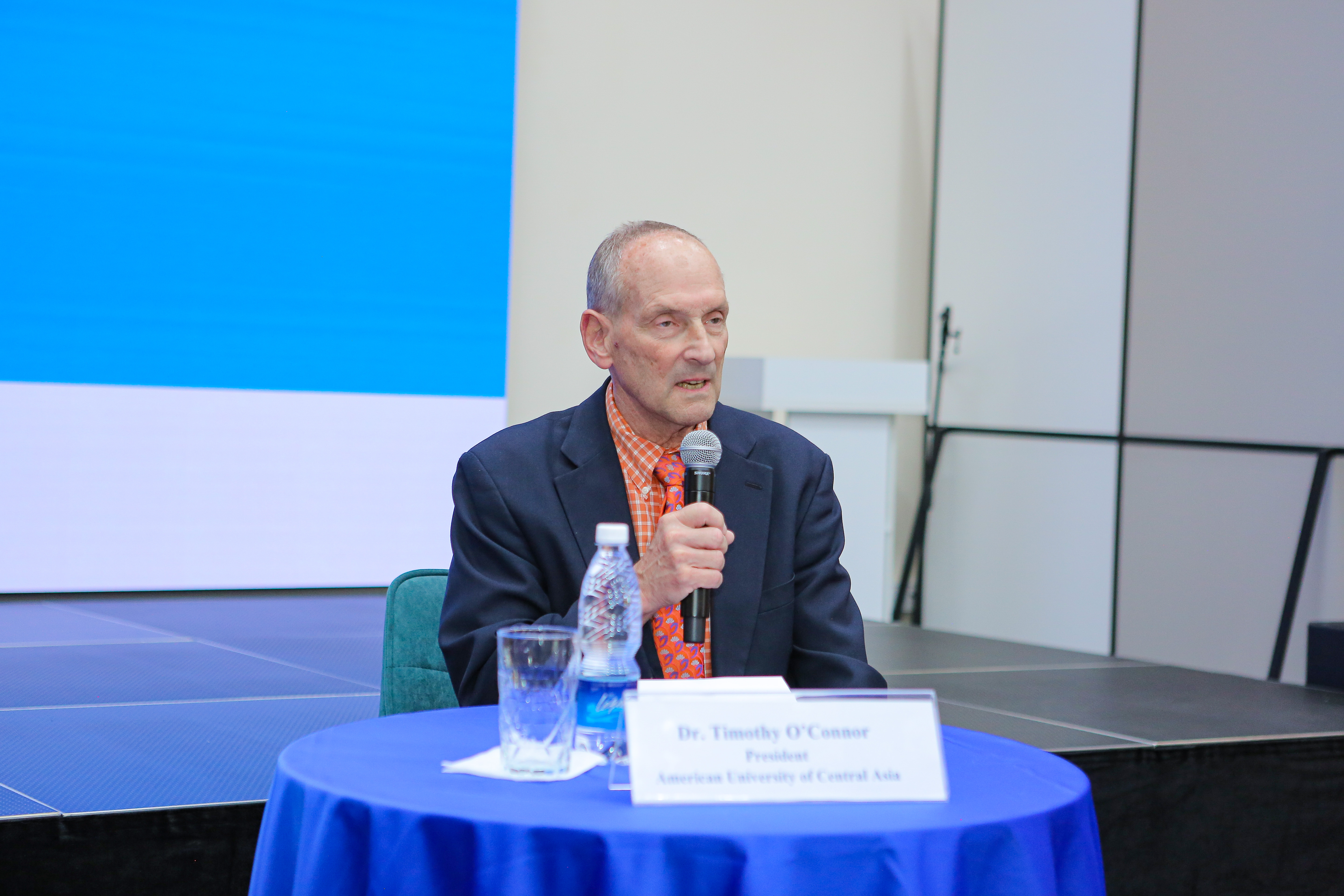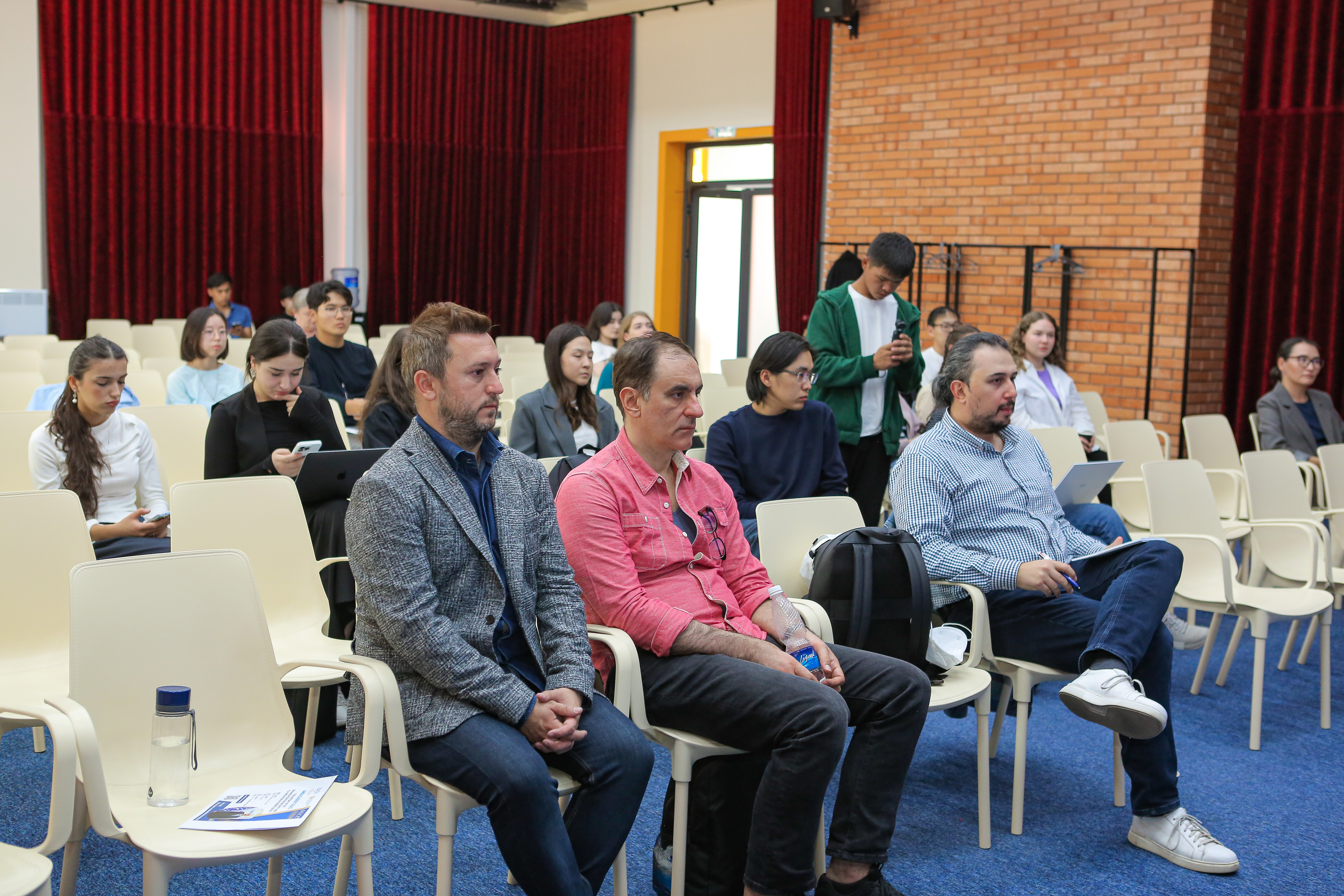Ambassador Talks with OSCE Mission Head Alexey Rogov: Exploring Security, Diplomacy, and Operational Presence
October 17, 2024
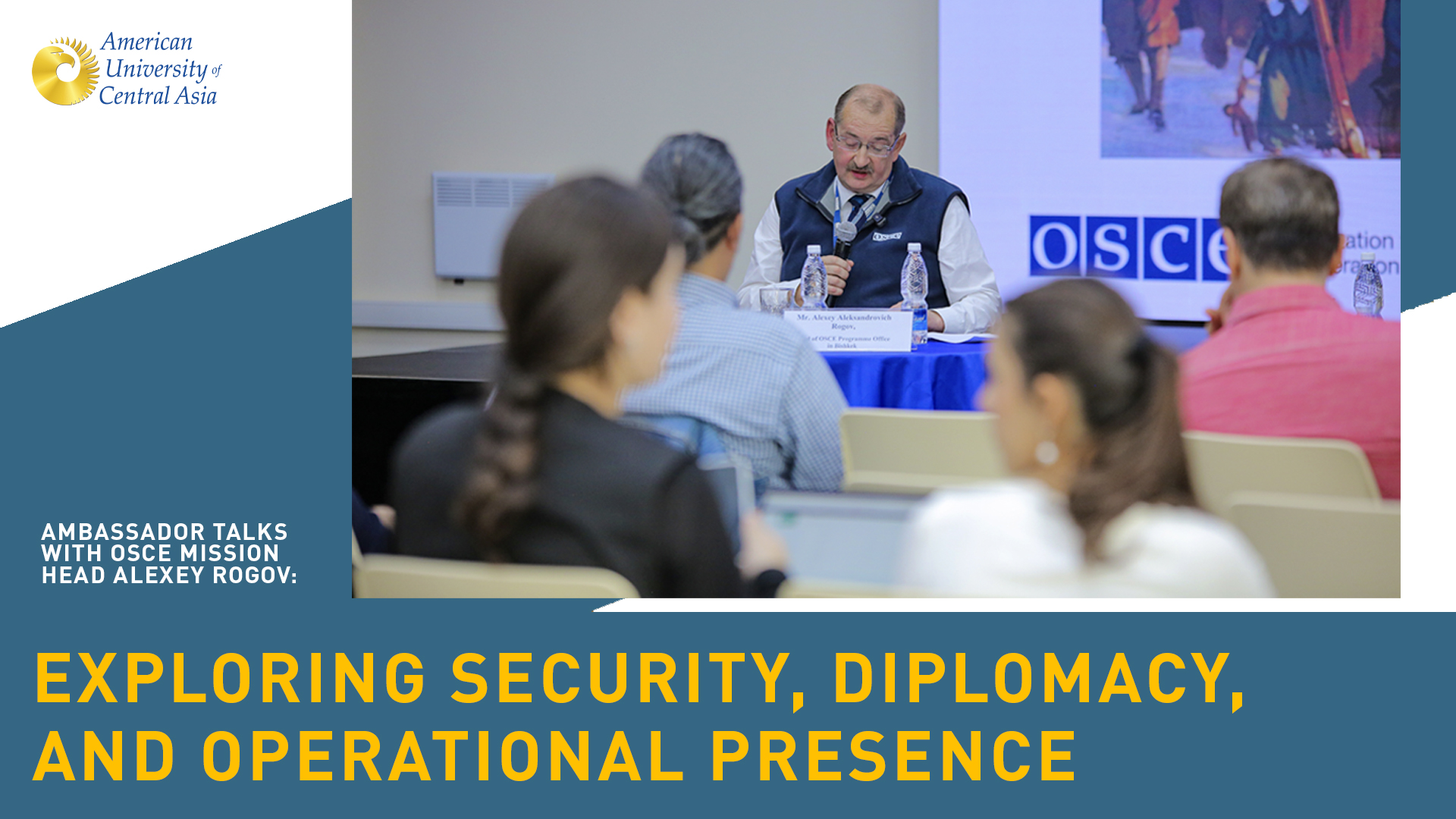
On September 20th, AUCA hosted its Ambassador Talks series. This time, the Head of the OSCE Mission in Kyrgyzstan, Alexey Rogov, delivered an overview of the Organization for Security and Cooperation in Europe (OSCE) and its work in the region. He shared insights on the history, operational work, and goals of the Organization for Security and Cooperation in Europe (OSCE). The discussion covered the organization’s field efforts, its multi-dimensional approach to security, and the impact of recent agreements. He highlighted the OSCE’s origins from the 1975 Helsinki Final Act and its ongoing role in promoting diplomacy, recalling Bismarck’s saying: “Diplomacy is the art of the possible.”
The OSCE, one of the largest regional security organizations, traces its origins back to the Cold War era. Its foundations were laid in the early 1970s as a forum for dialogue between East and West, culminating in the 1975 Helsinki Final Act. The organization formally became the OSCE in 1995, reflecting its commitment to broad cooperation in maintaining peace and stability across Europe, Central Asia, and North America.
Today, the OSCE continues its work across multiple fields, from conflict prevention to fostering environmental cooperation. As Rogov emphasized, the organization’s mission remains rooted in diplomacy, recalling Otto von Bismarck’s famous statement: “Diplomacy is the art of the possible.”
The OSCE is unique for its vast operational field presence, which enables it to address security challenges on the ground. With offices in multiple countries, the organization supports local authorities in ensuring stability and promoting human rights. The field missions also monitor elections and facilitate the implementation of peace agreements.
In his address, Rogov stressed the importance of the OSCE’s ability to work “on the ground” to build trust and promote sustainable solutions in regions facing challenges.
The Programme Office in Bishkek
The Programme Office in Bishkek plays a vital role in the OSCE’s regional activities, serving as a bridge between the organization and Kyrgyzstan. The office focuses on supporting security sector reform, environmental programs, and economic development initiatives. In 2024 alone, the office facilitated around 20 agreements, strengthening cooperation with national institutions.
The office operates with a budget of approximately 7 million euros, supporting various projects and employing specialists across multiple disciplines. The ambassador also touched upon the significance of Kyrgyzstan’s status as home to the OSCE Academy, the only one of its kind in the world, providing academic training in diplomacy and regional security.
